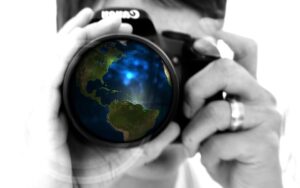It’s hard to imagine actively enjoying a class that starts at 7:30 in the morning. Three times a week. Especially with Final Semester Fever running amok. Yet I somehow have a professor who has managed to help me do just that…
Scientists Vs Writers
Our class recently read Fitz-James O’Brien’s The Diamond Lens. And despite the early hour, discussion over it erupted. In the story, O’Brien toys with the ideas of both science and the supernatural. It led my classmates and I to wonder about the nature of science versus the nature of imagination.
I found my thoughts drifting to questions about the mindset of scientists compared to that of writers. And I concluded that they’re actually quite alike.
Think about it:
Science is a field that explores ideas about life. It [broadly] explains how the world works. Depending on the particular branch, science also observes how society functions. Science is a way to gain insight into, and make sense of, the world.
Now consider this:
Writing is also a field that explores ideas about life. At its deepest roots, writing is like a lens. And through that lens, we can observe the world, different cultures, relationships, etc. While we craft our characters and shape their worlds, we come to better understand the people and societies in our own.
A Common Lens
Scientists and writers are pushed by the same motivator: curiosity.
Sure, scientists use microscopes, theories, experiments, etc., to discover what happens under defined circumstances. This is how they learn about our environment. It even helps them invent ways to better our society.
Writers are exactly the same, guys. Except instead of microscopes, we use language to express and inspire. Our words paint pictures in our readers’ minds. They can also trigger discussions like the one from my class.
Words encourage us to challenge our known reality. Consequently, we’re inspired to invent ways to better ourselves and society.